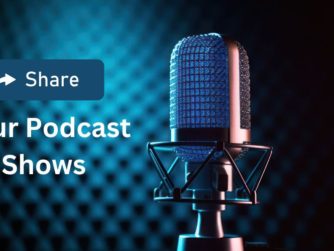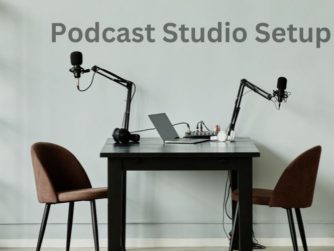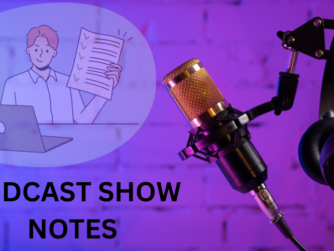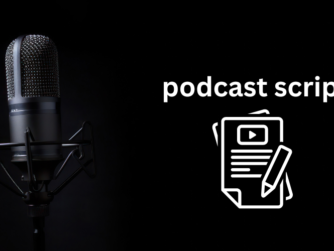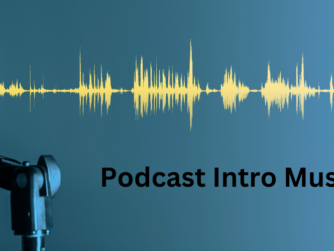3 Major Differences between Podcasts and Blogs :
Although both are powerful Web 2.0 social networking tools, there is a distinction to be made between blogging and podcasting. Before delving into their differences, it’s important to first grasp what blogging and podcasting are.
To completely know the distinction between blogging and podcasting, it is necessary to first comprehend the distinction between social networking and social media. While social networking allows users to interact online with friends, coworkers, and family, social media employs audio and video resources to disseminate content. Many social networking sites, such as MySpace, combine both blogging and podcasting, integrating social networking with social media.
What are blogs and podcasts, exactly?
The term “blog” was developed from the term “weblog,” which may be defined as an individual’s, corporation’s, or organization’s online diary. Blogs are often written in the first person and frequently feature subjective rather than objective information.
A podcast is an online audio recording that has been compressed into digital format and is supplied via an RSS feed. Podcasts are often used to disseminate information. As a result, they are frequently used to conduct an interview with an expert in a certain subject or to create an online audio lecture on a specific topic. A podcast is considered a kind of social media since it includes audio material.
The primary distinction between blogging and podcasting is how information is delivered. A blog is intended for reading, but a podcast is intended for listening. Blogs are often accessed using a computer. A podcast, on the other hand, maybe accessed through the Internet, an iPod, an MP3 player, or, in some situations, a mobile phone.
While both blogs and podcasts are supplied using RSS feeds, the podcast feed contains a component known as an enclosure. An enclosure adds a tiny audio file to an RSS feed by giving a link to where it may be downloaded.
Although some people are gifted in both written and spoken communication, many people struggle with the written word. Bloggers frequently use emoticons to explain the mood underlying their content. A blog may lack personality and persuasiveness if it lacks even a basic command of the written word. Fortunately, being unable to write effectively does not inevitably imply being unable to communicate well. A podcast allows the listener to hear voice intonations, which can indicate intangible traits such as the podcaster’s intellect, sense of humour, irony, and subject matter understanding. In other circumstances, podcasts are formatted like a Q&A session, giving the listener an understanding of how the podcaster interacts with others. This can be beneficial to enterprises.
Blogs and podcasts are also marketed in different ways. In general, bloggers add their blogs to the blogrolls of other bloggers who write about comparable topics. This is frequently a two-way street. A podcaster, on the other hand, will submit a podcast to a podcast directory, which is often categorised by subject. A podcast directory may have a lot of categories, but a blogroll normally comprises blogs that are related to a certain subject.

Posting content online is a need for both blogging and podcasting. There are, however, distinctions between the two. Here’s how they’re different:
1) Content
Blog postings are more likely to provide ideas and sentiments, whereas podcasts are more likely to include facts and data. Podcasts are more suited for marketing since they deliver important information to podcast listeners, allowing them to make educated decisions. Podcasts are frequently recorded live. Blogs are often made after a topic has been explored and edited into a cohesive piece of writing.
2) Accessibility
While most websites require internet connectivity, certain podcasts do not, as they can be downloaded to your device and listened to whenever you want, even when you are not connected to the internet. Blogs are frequently read on computers, laptops, and other devices, whereas podcasts may be downloaded from the internet. It may be listened to on your iPod, MP3 device, or phone. The primary distinction between the two media tools is the mode of distribution.
3) Duration
Time is one factor that distinguishes blogging from podcasting. Podcasts are often lengthier in length than blogs. A podcast can range in length from 5 minutes to an hour. A blog, on the other hand, is often shorter than a podcast.
Blogging and podcasting are both excellent methods to reach out to an audience. However, one is intended for an informal chat, and the other is intended to provide true information. It also depends on your objectives. If you’re attempting to sell a product and want to ensure that you can persuade more people successfully, a podcast can help.
Find the Best Business Podcasts in Dubai





